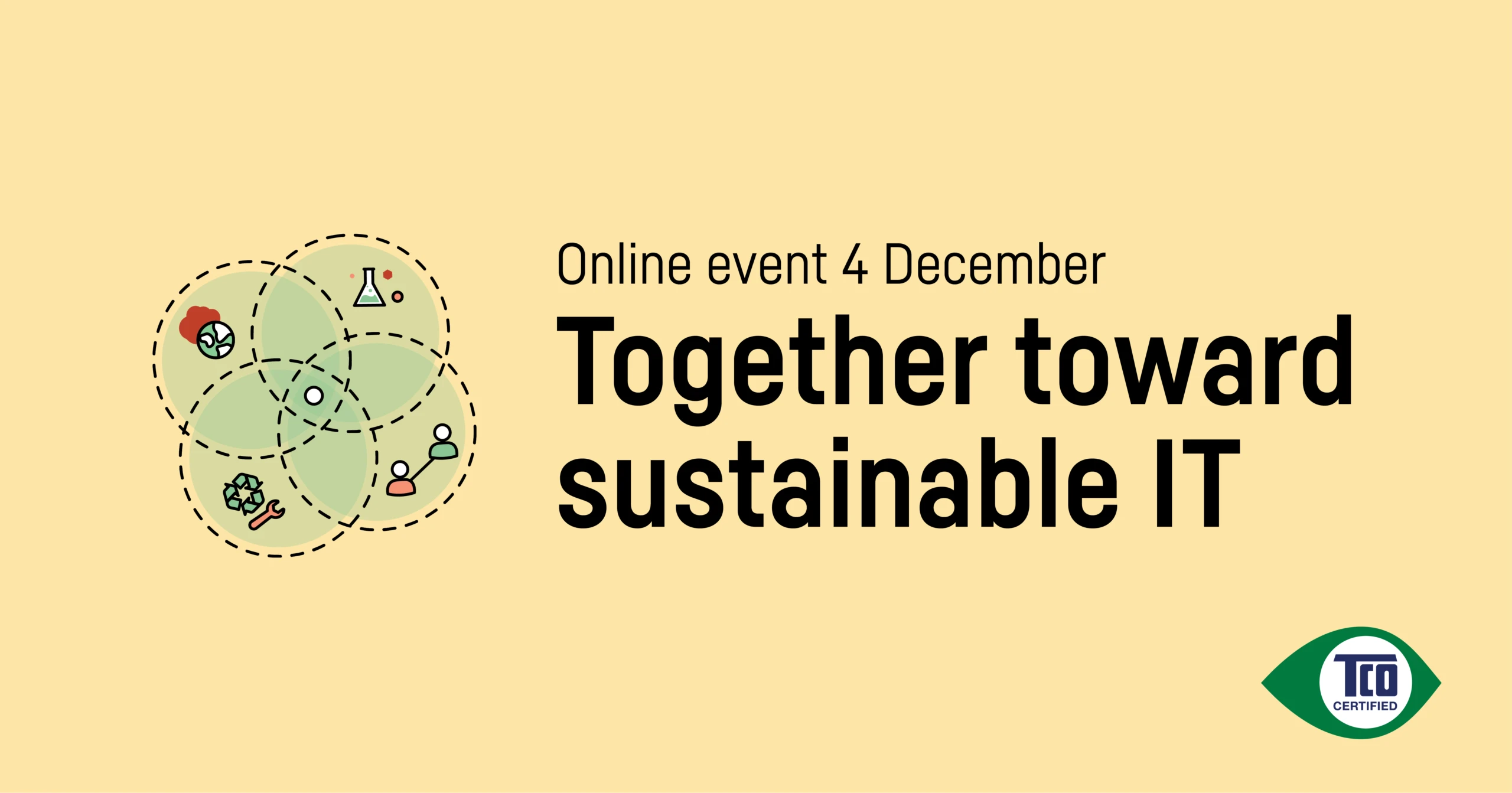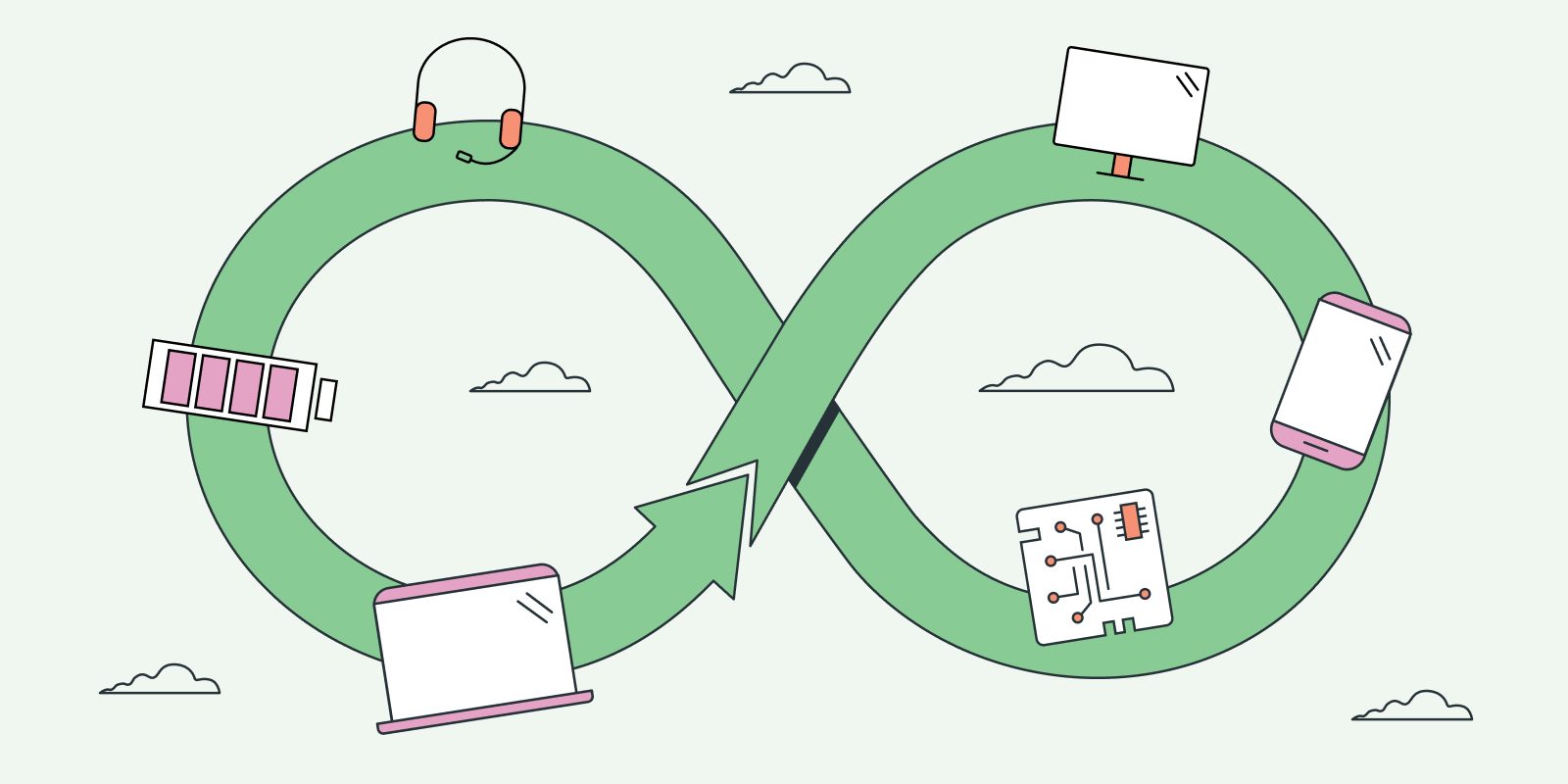For many, 2021 will also be a year of working from home, forcing organizations to adapt to an online-only environment. What is trending for a more sustainable home office?
Todays’ linear way of producing and consuming products is ruining fragile ecosystems, causing the loss of valuable natural resources. Instead, we need to adopt a circular approach to the way we are consuming, designing and operating. The circular economy brings more sustainable solutions where products are in use for longer and materials are reused to manufacture new products. That way we can make the most out of valuable natural resources that are used in each product.
1. Empty offices leaves unused IT equipment
Since many no longer go to the office at all, the most sustainable thing to do is to keep using computers, displays and other products you already have – and bring them home. Buying new products just for the home office is a waste of resources.
2. The rental market is on an upswing
Working from home is, hopefully, a temporary solution. This might mean you have short-lived equipment needs that will cease once you are back at the office again. Businesses have picked up on this trend and offer flexible rental services for this purpose.
3. The second-hand and refurbishing market is booming
There is an increase of high-quality second-hand or refurbished products available through private buy-and-sell platforms as well as companies specialized in supplying larger organizations. In many cases, product warranties are offered – making this a more viable option. Buying second-hand or refurbished products is beneficial both for your wallet and for the environment since it normally is cheaper than buying new.
4. Sustainability is a higher priority when buying new
Sometimes, new products are needed. And for this, the interest in more sustainable solutions is increasing with a better understanding of how our choices impact the environment. When buying new, choose products that carry a sustainability certification that includes robust criteria and requires independent verification, like TCO Certified for IT products. Avoid self-declaration and labels with unverified claims. And make sure to choose a durable product designed to last and be repairable so that it can live longer.
My conclusion
No IT product will ever be completely sustainable. But we need them for work, education and in our private lives. Responsible choices are therefore important to reduce environmental impact and avoid unnecessary loss of natural resources.
For example, the majority of the Co2 emissions for smaller IT products are generated in the manufacturing phase, and not during the use phase as many may think. So unless you plan to keep your product for more than 20 years (which is the time when you can start calculating some Co2 benefits of buying new compared to extending the life of an existing product) the best choice will always be to prolong the life of the products that you already own.
If you do need a new product, look for second-hand or rental alternatives first, and if you can’t find something that meets your needs – make sure to buy a product that is more socially and environmentally just. The easiest way of doing this is to buy one certified with a credible sustainability certification like TCO Certified.
Would you like to know more about how to manage your IT products in a more circular way? Read our Impacts and Insights report here.

Cassandra Julin is the Global PR & Communication Manager at TCO Development, the global leading sustainability certification behind TCO Certified. In her role, she has been the project lead for #CircularElectronicsDay almost since its beginning. She has more than 10 years of experience in driving sustainable change through communication and external relations building. Cassandra holds a Master’s degree in European Business Law and a Bachelor’s degree in English and European Laws from University in Essex. Cassandra has also won the Swedish national rugby championship several times, and climbed Mount Fuji and Mount Kilimanjaro.




